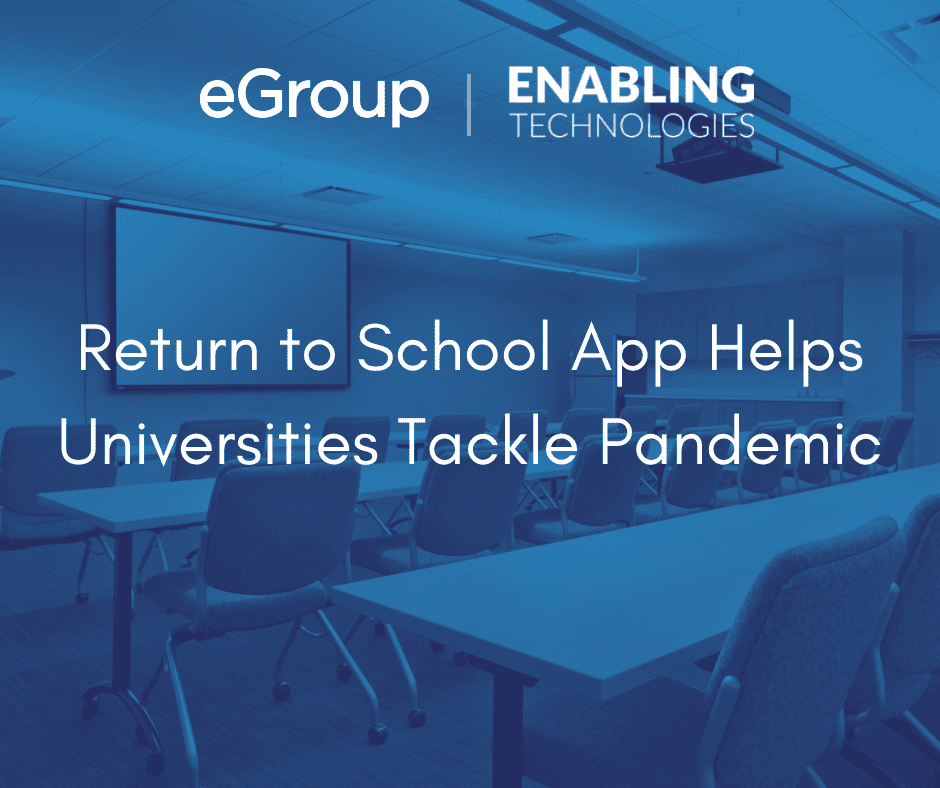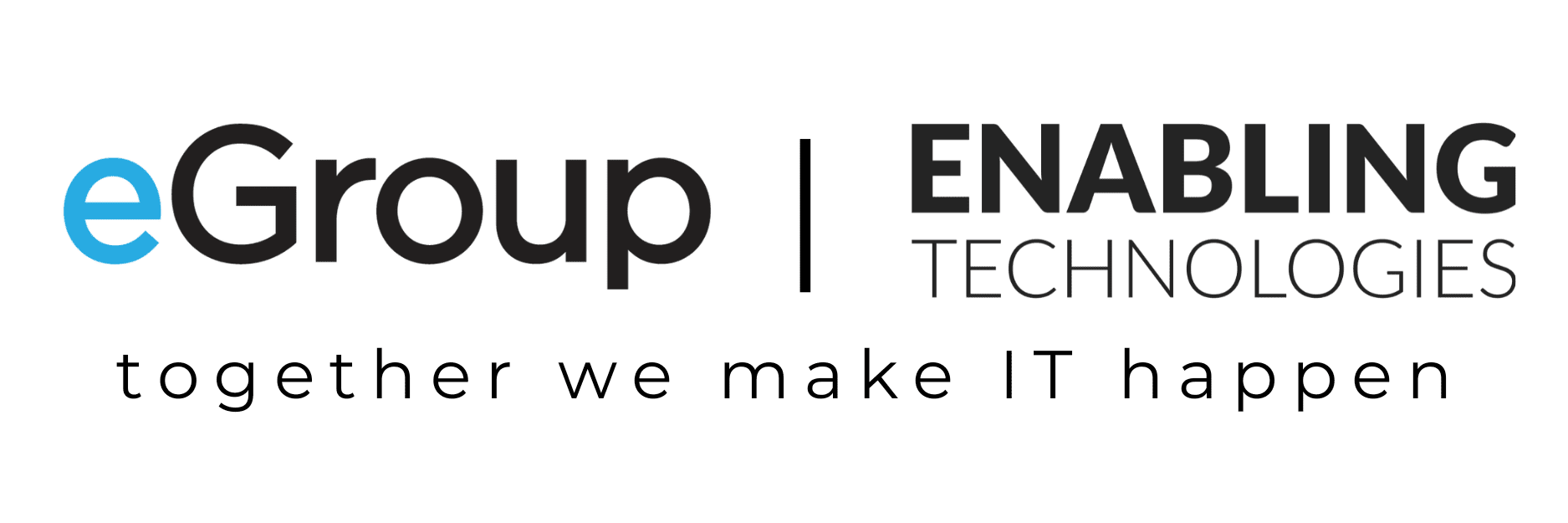Return to School App Helps Universities Tackle the Pandemic

Introduction
Like many organizations, Tuskegee University faced formidable challenges amid the pandemic. Not only was the safe return of students and faculty to school a priority, but since Tuskegee is in a community with no hospital, controlling exposure was essential.
Amongst Tuskegee’s many challenges were:
- A statewide lack of availability testing kits at the outset of the pandemic
- Handling the logistics of testingTracing contracts to allow students back to school in a safe manner
- Providing a simple app for people to report their status, schedule tests, and receive results
Public health specialist Atty. Crystal James stepped up to address the challenge. “We realized that in order for us to get back to face to face, we needed to have a strategy to protect the learning environment,” she recalled. Ms. James was asked to expand her role as Department Chair in the College of Veterinary Medicine to include a new role, the Special Assistant to the President for COVID-19 Response.
With the help of industry partners like Microsoft and eGroup Enabling Technologies, Tuskegee has effectively been executing their COVID strategy. This blog briefly outlines how.
Lack of Testing Kits
“The first hurdle we faced was the lack of test kits,” Crystal recalled. “The COVID-19 Recovery Management Center (CRMC) studied what the test kits are made of and decided ‘Let’s make our own test kits.’ The TU CRMC is composed of laboratory scientists, policy specialists, nurses, and public health professionals. We made test kits not only for our faculty, staff, and students, but also for the surrounding Black Belt Counties who also lacked accessibility to tests.”
Handling the Logistics of Testing
With their campus laboratories ready to make the kits, the industry then came to Tuskegee’s aid. Thermal Fisher Scientific generously offered the instrumentation for Tuskegee to do PCR testing on campus. In February 2021, Tuskegee University stood up their own CLIA certified reference laboratory and began PCR testing for COVID-19. They tied their testing systems to Thermo Fisher’s for processing.

An Easy to Use App
With test kits and the ability to provide results on campus, TU Health Disparities Diagnostic Center under the leadership of Dr. Clayton Yates and Atty. James addressed the next step. “We needed a mechanism to deliver the test results back to individuals in a timely way, and to monitor who’s been on campus next to whom. Enter Microsoft’s Return to School app.”
Several options existed to solve the problem, but Tuskegee found Microsoft’s Return to School (RTS) solution unique. Like many customers, they already own the licensing needed, and the platform to build apps exists within their Microsoft 365 tenant. Since Power Platform is part of Microsoft 365, training, security, and integration of third-party solutions is simplified, and allowed Tuskegee’s skills to extend rather than having to start anew.
“With the Return to School app, we now have one tool to schedule tests, send test results back, and attest to health status while on campus,” stated Ms. James.
You can find the information about the app at Golden Tiger Health Check | Tuskegee University

Integration Assistance from eGroup Enabling Technologies
9x Microsoft Partner of the Year, eGroup Enabling Technologies, led the coordinated development efforts on behalf of Tuskegee. eGroup Enabling Technologies also rolled out the Return to School app at Lake Washington School District, Kent School District, and Howard University.
“eGroup Enabling Technologies provided the technical expertise to be able to create a new system that would talk to the two existing systems,” stated Crystal, “including CareEvolve and Thermo Fisher’s Platform for Science. eGroup Enabling Technologies helped with APIs, programming, and some other integration, which was helpful for non-IT people.”
Microsoft technology not only provided a simple to use app, but also the integration protocols needed to handle the end-to-end testing and results process. eGroup Enabling Technologies used:
- Azure Logic Apps (to read/write data in and out of RTS’s Dataverse tables)
- Azure API for FHIR (for transferring data between RTS and Care Evolve)
- CareEvolve’s FHIR interface
Brandon Schoch, eGroup Enabling Technologies’ CTO of App Development, architected the solution. “We were able to use the open standard FHIR protocol to safeguard Tuskegee’s data between the front-end Power app and the testing service’s database,” said Schoch. “Testing data is sent back from CareEvolve into RTS, where students and faculty can see their results.”
Building an app that was simple to use was paramount. The features in the App allowed students and faculty to:
- Report and screen for symptoms – keeping track of symptoms and questionnaire responses by completing daily self-attestations from a smartphone or desktop.
- Create daily passes – after completing the daily self-attestation, RTS generates a unique daily QR code. That barcode is scanned to gain access to campus facilities.
- Manage testing – designated personnel can manage student appointments, questionnaire responses, and test result notifications
Soothing the Concerns of the Community
With the pandemic swirling, Tuskegee’s students, faculty, and staff had enough on their minds. Learning to use a new app couldn’t be another burden. eGroup Enabling Technologies’ Organizational Change Management team, led by Gabrielle Manuel, stepped in. “It was important to provide students, faculty, and staff with appropriate support materials and advance messaging to prepare them to begin using the app,” she said. “The custom messaging and user guides and videos provided clear instructions and expectations.”
Tuskegee’s James advised, “One of the biggest issues that aren’t as well highlighted about the pandemic is the Anxiety that is created when you have to engage in public spaces during this pandemic. Having a tool like RTS brings that anxiety level down to a manageable level and brings our students and faculty back to an environment that we can call as safe as possible.”
The Results
“Through the use of the app, the safety of Tuskegee’s students, faculty, and staff was improved. That’s a gratifying outcome in any situation,” asserted Chris Stegh, eGroup Enabling Technologies’ CTO.
Ms. James was able to provide concrete metrics. “Having the Return to School solution has helped us to decrease the time from exposure to a confirmed PCR lab result down to five hours. That reduces the mental stress of the individuals who are potentially exposed. It also helps Tuskegee assure parents and students that there is a system in place to monitor trends every day, since RTS also publishes results to our dashboard. We publish the number of cases that we have on campus, the number of tests conducted, and our percent positivity rate.”

While Ms. James is optimistic, she’s also realistic. “While I know the rest of the world would like for us just call it over, that’s not how pandemics work. We realize that COVID will still be an issue that needs to be addressed on our campus. Because we are in an area that does not have a hospital and access to health care is very sparse, we want to continue to monitor the prevalence of COVID-19 on our campus. The Return to School app will help us pivot should another wave start around the country.”
Work with our team of experts who have done this so many times they know all of the “minefields” to prevent missteps!
“eGroup Enabling Technologies provided the technical expertise to be able to create a new system that would talk to the two existing systems.”
Crystal James - Public Health Specialist Attorney
Contact Our Team of Experts Today!
Interested in how our team can provide you with the IT Services you need around the products and solutions you’ve acquired?
Contact our team to learn more.

